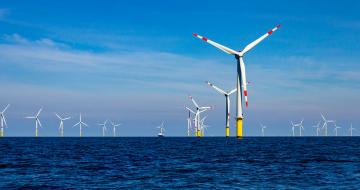Table of Contents
Before launching your self-employed activity, you need to check whether you have an obligation to register for VAT. If this is the case, then you will have to identify yourself to the FPS Finance - General Tax Administration.
Is your Company Subject to VAT?
If your company regularly and independently provides goods or services falling under the VAT Code, it is subject to VAT (VAT Code, article 4).
If your company exclusively carries out certain activities exempted by Article 44 of the VAT Code and, so far as certain conditions are met, it is liable for VAT but does not have to charge VAT to its customers or to be identified for VAT purposes. This applies, for instance, to activities in the following industries:
- social or cultural;
- financial;
- medical.
If, as a natural person, you meet all the conditions to benefit from the VAT regime for the collaborative economy, you are submitted to VAT if you carry out these operations independently and regularly, but you do not have to charge VAT to your customers and you do not have to be identified for VAT purposes.
Foreign companies must also identify themselves for VAT purposes, if they carry out operations in Belgium that are covered by the VAT Code, provided they are liable for VAT in Belgium.
It is not always clear whether or not certain professions must identify themselves for VAT purposes. If in doubt, check with your certified accountant, tax advisor or the FPS Finance.
Who Should you Ask for your VAT Identification?
In order to obtain your VAT identification, you must apply for it at your competent tax office before starting your activity. Your enterprise number is, then, activated with the FPS Finance - General Tax Administration.
You can delegate this procedure to an authorised representative.
The business counter can also apply for VAT identification on your behalf, for a fee. The cost of this service varies from one counter to another.
What Are your Obligations Regarding VAT?
Among other things, a business submitted to VAT is required to:
- Electronically file VAT returns;
- Pay to the Treasury the VAT it charges to its customers;
- Electronically provide an annual listing of taxable clients;
- Keep accounts and submit invoices.
The Different VAT Regimes
The Normal Regime
The normal regime is applicable to all persons liable to VAT who do not benefit from any other regime.
Companies are required to submit a monthly report for the previous month's transactions.
Companies whose annual turnover does not exceed EUR 2,500,000 excluding VAT may submit a quarterly declaration (exception: the ceiling is EUR 250,000 excluding VAT for supplies of energy products, mobile telephone equipment, computers and their peripherals, accessories and components, as well as motor land vehicles subject to registration regulations). However, a company cannot opt for quarterly filings if the total amount of exempt intra-Community supplies and sales in the context of triangular transactions exceeded EUR 50,000 in the quarter in question or in any of the four preceding quarters.
Special Regimes
The application of the normal VAT regime entails a number of tax obligations. In order to lighten these obligations, small businesses can opt for certain special regimes:
- The tax exemption regime concerns small enterprises with an annual turnover not exceeding EUR 25,000 (excluding VAT). These companies are exempt from most of the VAT obligations.
- The flat-rate regime applies to companies with an annual turnover not exceeding EUR 750,000 (excluding VAT), which deal mainly with private individuals and which operate in certain sectors. As of 1 January 2020, this regime is limited to natural persons submitted to VAT. Since1 January 2022, new VAT taxable persons and existing taxable persons that are submitted to the normal tax regime or the tax exemption regime for small businesses who wish to adapt their VAT activity can no longer opt for the flat-rate regime. This regime will be abolished from 1 January 2028.
- The agricultural regime which applies to agricultural holdings. On 1 January 2022, this special regime has been adapted to take account of the diversification of farmers’ activities. To benefit from one of these regimes, you can contact the SPF Finance.
Additional Information
For more information, please contact the FPS Finance:
FPS Finance
Contact centre
Tel.: +32 2 572 57 57
Website: https://finance.belgium.be/en/enterprises/vat
E-Services: https://finance.belgium.be/en/E-services/overview


